How Long Can a Battery CCTV Camera Run on One Charge?
With the growing demand for advanced security solutions, battery-powered CCTV cameras have become a preferred choice for surveillance camera installation in Melbourne. Their ease of installation and flexibility make them ideal for both indoor and outdoor use. However, one of the most common concerns for buyers is how long these batteries actually last on one charge.
In this guide, we’ll cover everything from average battery life and performance in HD models to DVR battery support and solar-powered options—helping you understand what to expect before investing in a battery-powered CCTV system.
Average Battery Life of CCTV Cameras
On average, most battery-powered CCTV cameras last between one to six months on a single charge. Some high-end models with advanced battery management systems can stretch up to 12 months under ideal conditions. The battery longevity largely depends on how often the camera records, the resolution it captures, and the features it supports.
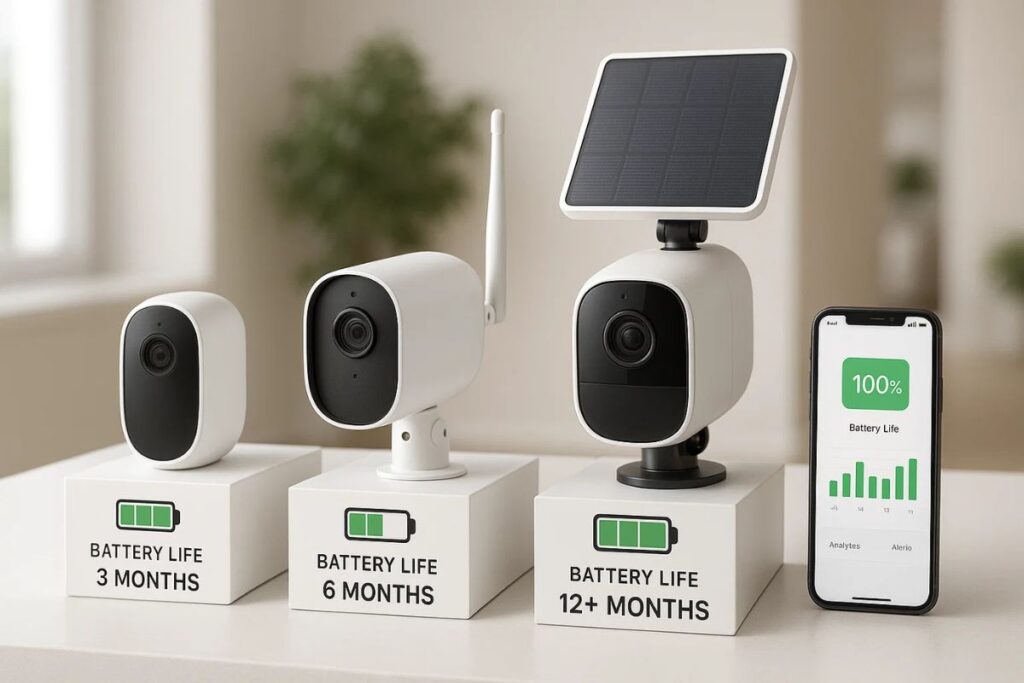
Cameras with high-definition (HD) or smart capabilities, such as two-way audio and AI motion detection, often have shorter battery cycles due to their increased power requirements. On the other hand, security systems that are solar-assisted can operate continuously, bypassing the need for frequent manual charging entirely.
What Influences the Battery Life of CCTV Cameras?
Understanding these differences can help prevent confusion, especially when shopping for IP cameras, where audio features are often bundled with app-based controls or smart integrations. One of the most critical influences on battery consumption is the camera’s recording mode. Cameras that record continuously (24/7) use far more power than those set to capture footage only when motion is detected. Motion-based recording allows the camera to remain in a low-power standby mode until activity is sensed, conserving energy and extending battery life significantly. For homes and businesses across Melbourne, ongoing professional CCTV maintenance services help keep your security systems operating at peak performance.
Camera Resolution and Video Quality
Higher-resolution cameras deliver clearer images but demand more power to operate. Models recording in 1080p, 2K, or 4K require more processing power and memory to store detailed footage, leading to quicker battery drain. Users who prioritize sharp image quality should be aware that it often comes at the cost of reduced battery longevity.
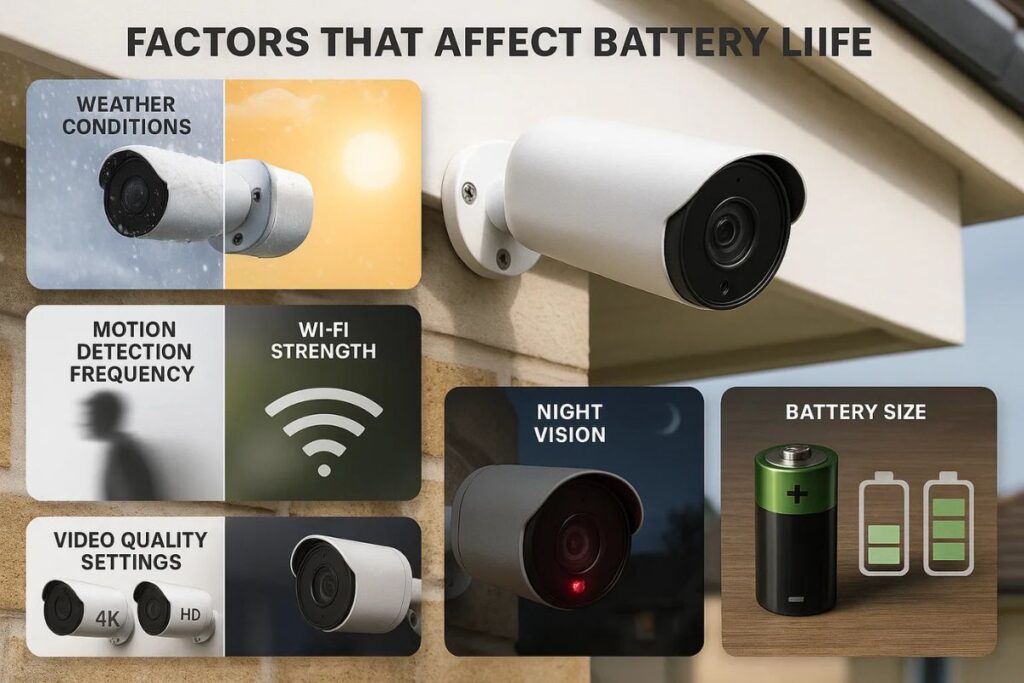
Wi-Fi Strength and Connectivity Stability
Wireless CCTV systems rely on Wi-Fi to upload video or send alerts. When the connection is weak or inconsistent, the camera works harder to reconnect or resend data, consuming more energy in the process. Ensuring strong and stable connectivity can help preserve battery life and reduce unnecessary power usage.
Temperature and Environmental Conditions
The physical environment plays a big role in battery efficiency. In extremely cold conditions, battery performance drops due to slower chemical reactions inside the cell. Similarly, excessive heat can cause the battery to degrade more quickly over time. Weather-resistant models help, but even these may see shorter battery spans when exposed to harsh climates.
Frequency of Motion Alerts and Activity Levels
Cameras installed in high-traffic zones, such as front doors, driveways, or busy commercial areas, are triggered more often. Each time the motion sensor activates, the camera wakes up, records, and sometimes sends notifications—actions that all consume energy. In contrast, cameras placed in low-activity areas will retain their charge much longer due to fewer triggers.
Battery Performance in HD CCTV Models
High-definition CCTV cameras, especially those with 2K or 4K resolution, deliver exceptional clarity but typically consume more battery power due to increased processing and storage demands, resulting in shorter battery lifespan. On average, these HD models offer one to three months of battery life under moderate usage, though activating power-saving features—like lowering frame rates, adjusting motion zones, or disabling night vision during daylight—can noticeably improve performance. For a more stable and long-term wired solution, consider upgrading to Dahua cctv security packages to enhance your overall security setup.
Understanding DVR Battery Backup Options
While traditional DVR systems aren’t designed to be battery-powered, many users connect them to a UPS (Uninterruptible Power Supply) to keep them running during power outages. This setup ensures continuous video recording even when the main power source fails.
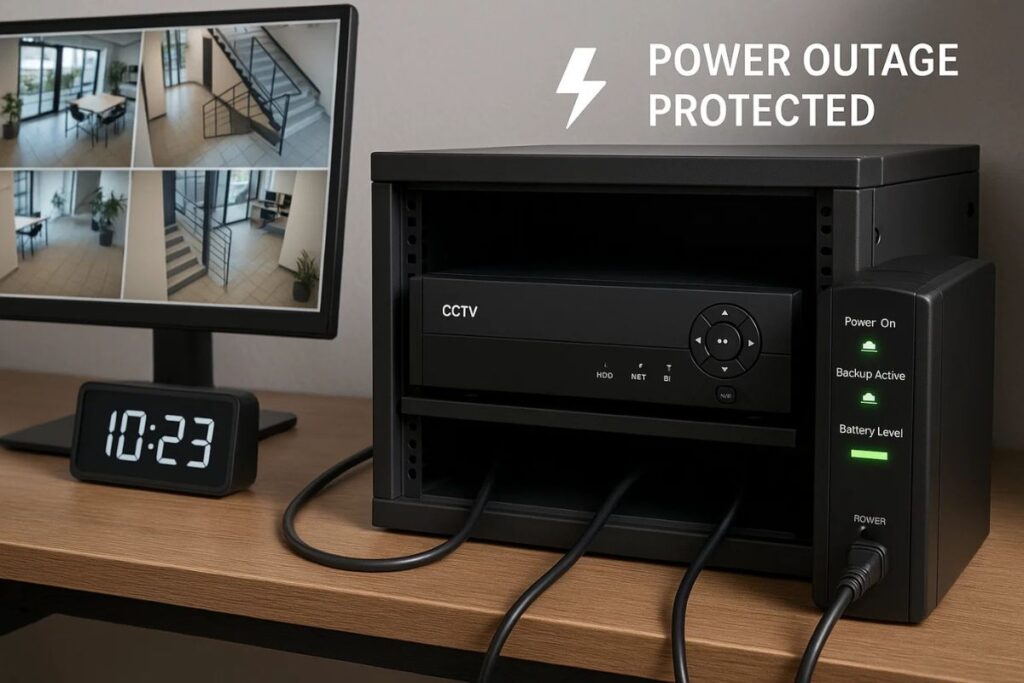
Some mobile DVR setups, especially those used in transport or remote environments, come with built-in or external battery packs. Depending on the battery’s capacity, a DVR backup can last anywhere from one to eight hours. This is especially useful in areas with unstable electricity or locations where a standard power source is not available.
Rechargeable vs. Replaceable Batteries
Battery-powered CCTV systems typically use either rechargeable or replaceable batteries. Rechargeable units, usually powered by lithium-ion cells, can last two to three years before showing signs of degradation. They typically require four to ten hours to fully recharge, depending on the battery size and power supply.
Replaceable batteries are more common in entry-level models. While they offer convenience in terms of quick swaps, the long-term cost of purchasing new batteries can add up. Over time, rechargeable systems tend to be more cost-effective and environmentally friendly if maintained properly.
Solar Panel Integration for Continuous Power
One of the most energy-efficient solutions for outdoor CCTV cameras is solar panel integration. These systems are designed to work with compatible solar panels that recharge the battery throughout the day, allowing the camera to run without manual charging.
Solar-assisted cameras are particularly useful in locations without easy access to electrical outlets, such as large properties, construction sites, or rural areas. However, not all battery-powered cameras support solar panels, so it’s important to check compatibility before purchasing.
Maintenance Tips to Extend Battery Life
To get the most out of your CCTV camera’s battery, certain maintenance practices can go a long way. Activate smart features like motion detection zones or scheduled recording to minimize unnecessary power use. Cameras placed near busy streets or moving tree branches may trigger false alerts, draining the battery faster, so adjusting the camera angle can reduce this.
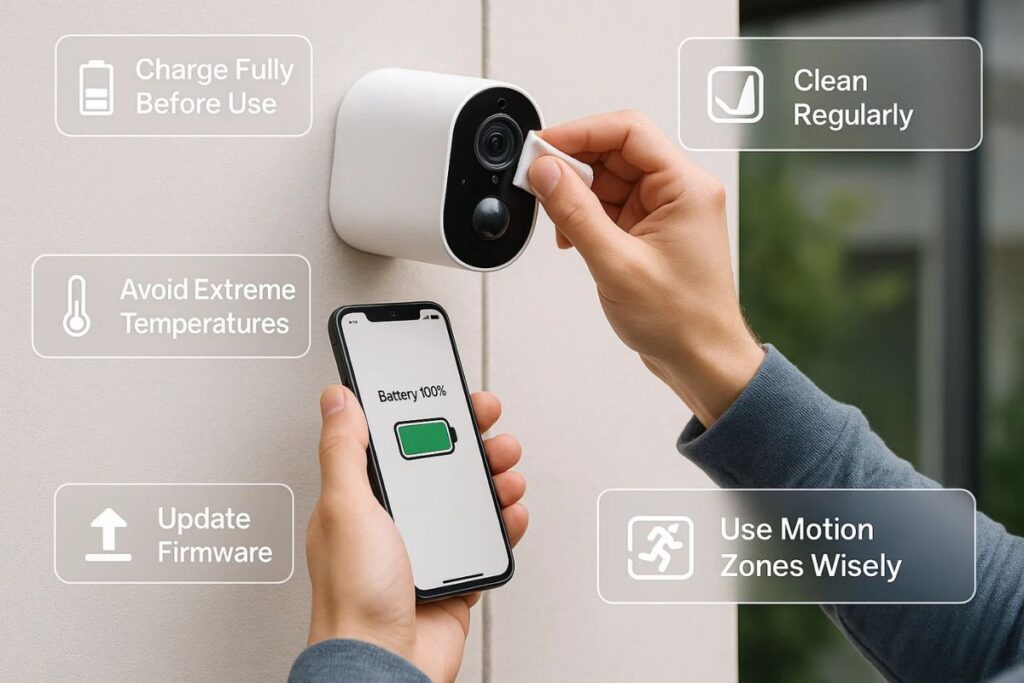
Keeping the camera’s firmware up to date ensures that you benefit from the latest energy-saving updates from the manufacturer. Also, cleaning the camera lenses and motion sensors regularly prevents malfunctions and unnecessary triggers that can impact battery life.
Signs It’s Time to Replace the Battery
All batteries degrade over time, and CCTV camera batteries are no exception. If you notice that your battery doesn’t hold a charge as long as it used to or takes significantly longer to recharge, these are signs it may be time for a replacement.
Most rechargeable batteries start to decline after 500 to 800 charge cycles, which usually translates to around two to three years of use. Replacing the battery at this point will help maintain optimal performance and reliability.
Cost Comparison and Long-Term Value
While battery-powered CCTV systems may have a higher upfront cost compared to traditional wired systems, they often save on installation fees and ongoing maintenance. Rechargeable systems, especially those that support solar charging, offer long-term value and energy efficiency.
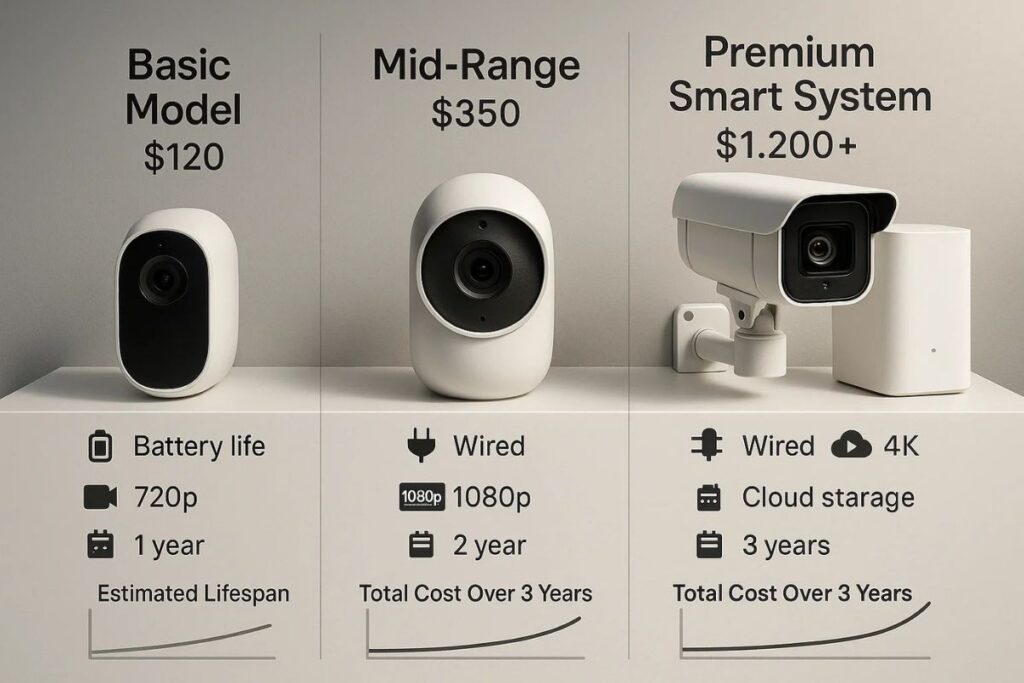
When comparing costs, consider the price of battery replacements, solar accessories, or backup power systems like UPS for DVRs. While a full UPS system might seem expensive initially, it can protect your security system and data in case of power failures, making it a worthwhile investment.
Conclusion
Understanding the battery life and power requirements of CCTV systems is essential before making a purchase. From basic home models to high-resolution commercial cctv setups, battery performance varies widely depending on features, usage, and environment. Whether you choose a rechargeable HD unit, a DVR system with backup power, or solar CCTV installation in Melbourne, understanding how long your system can operate on battery power will help you make an informed and secure decision.





